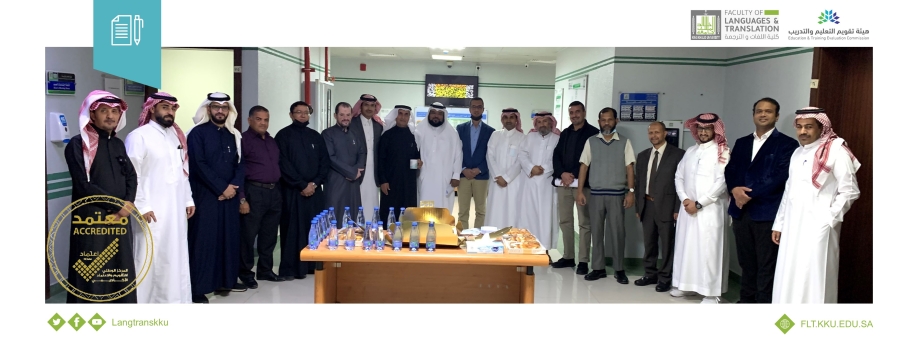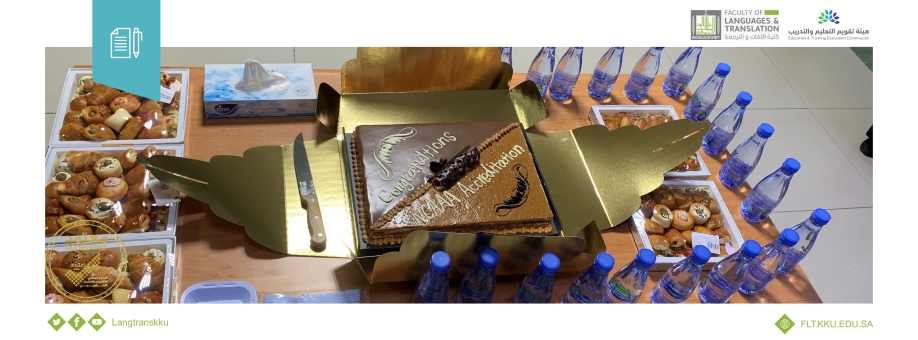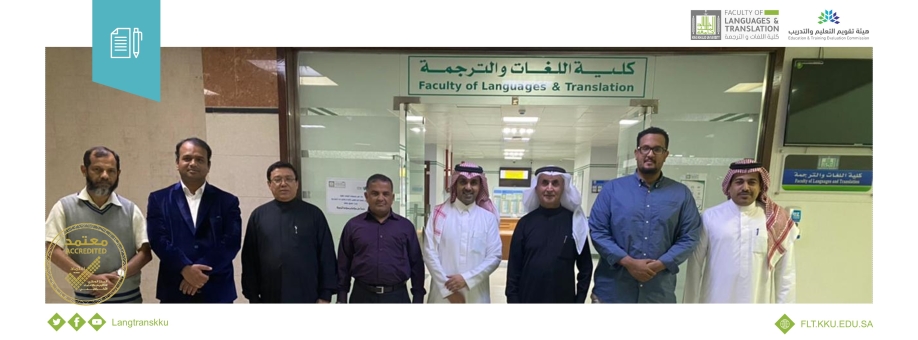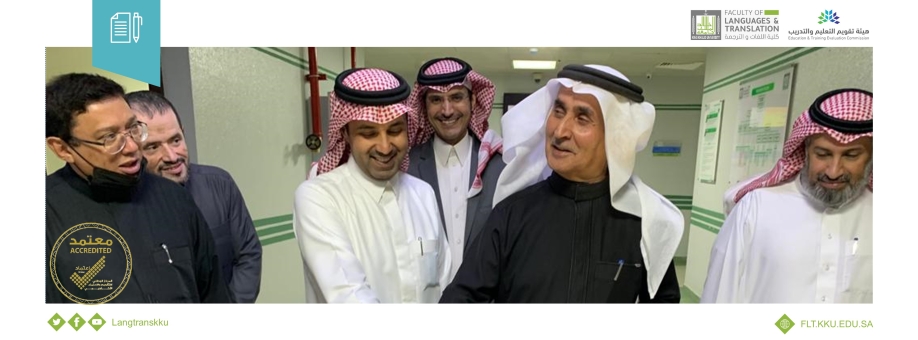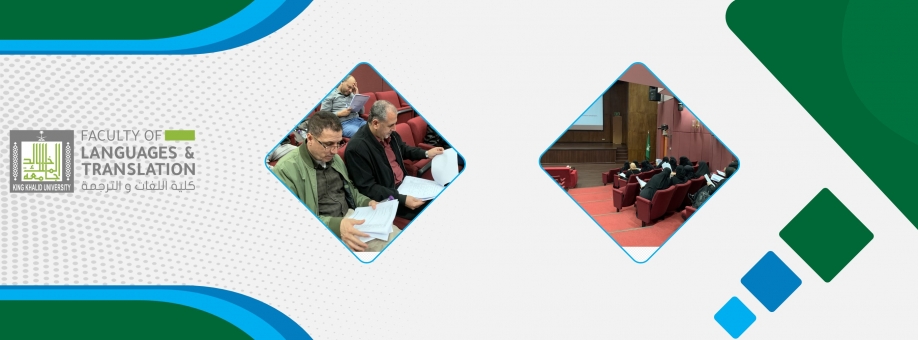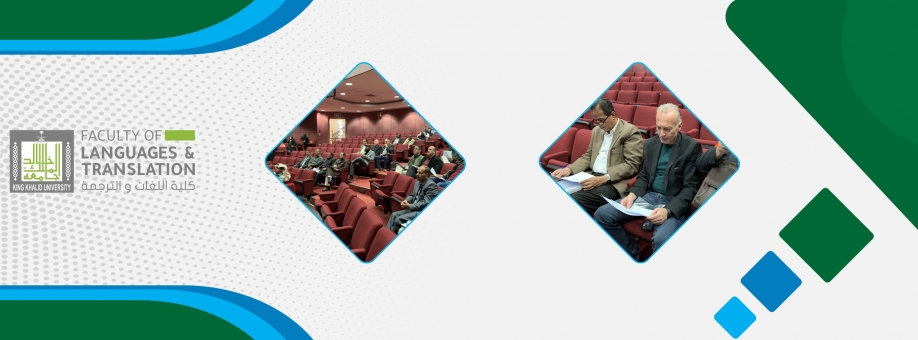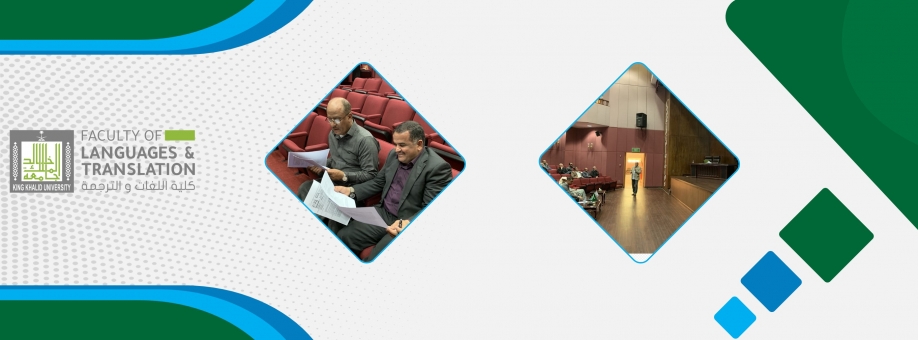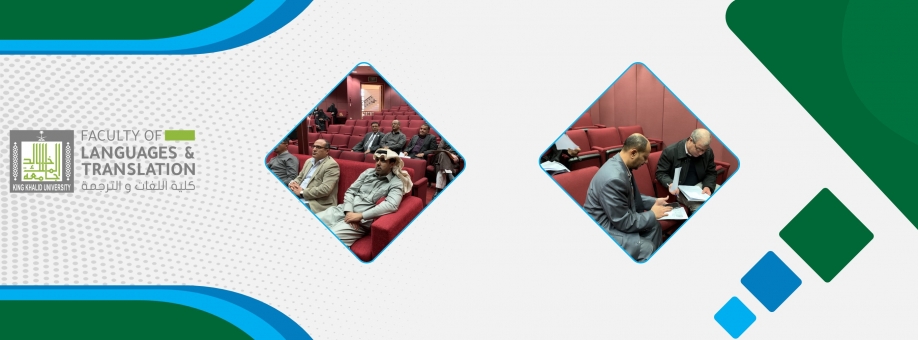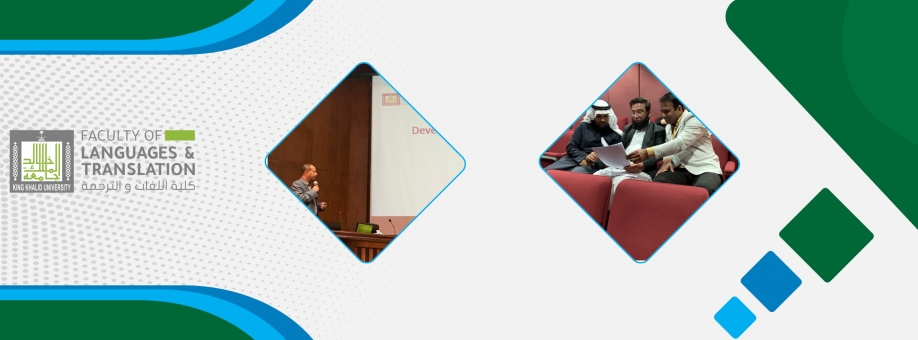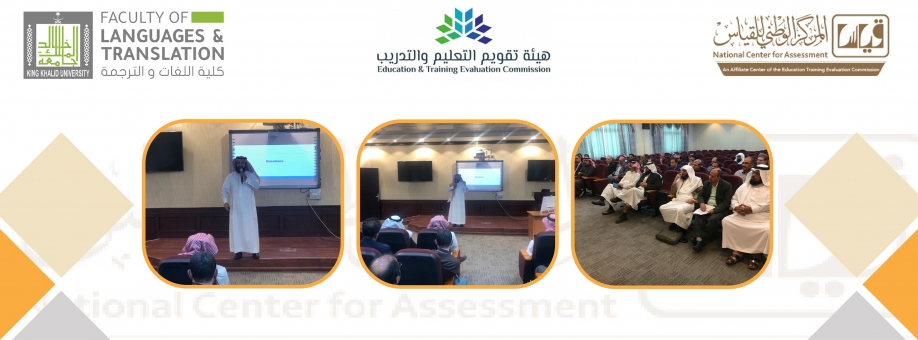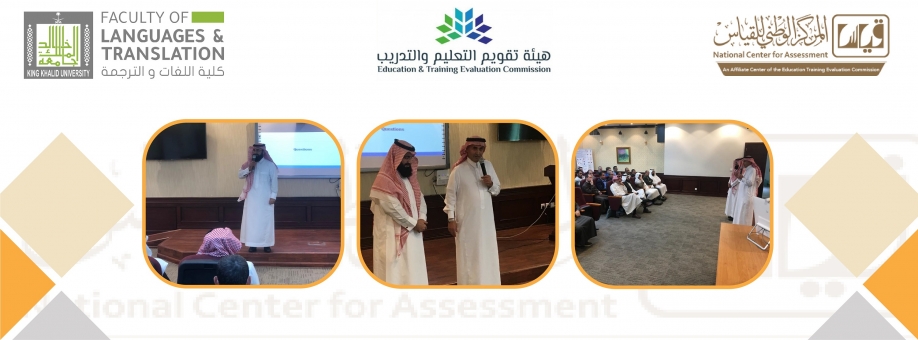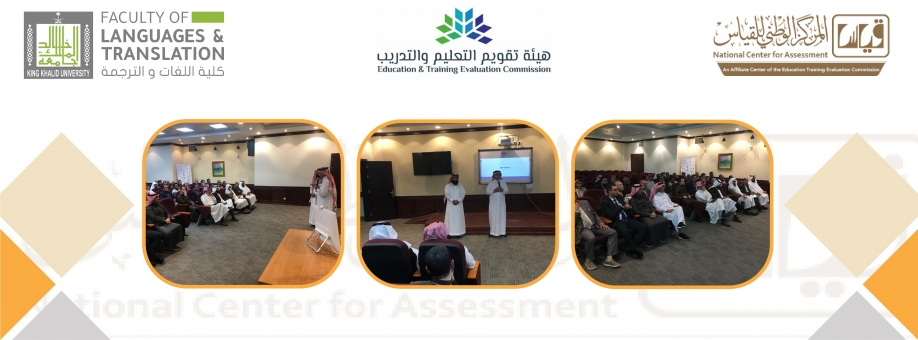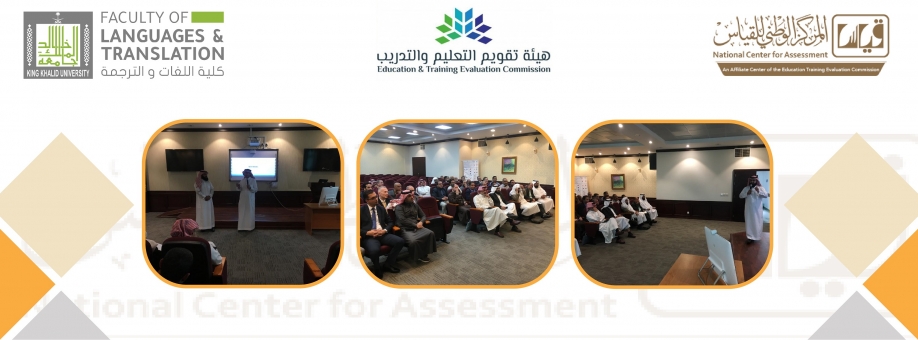Accreditation Team Celebrates Full NCAAA Accreditation
On Monday, March 28, 2022, the accreditation team celebrated news of the Bachelor of Arts in English Program, one of the leading programs at King Khalid University, being awarded full accreditation for the first time by the Education and Training Evaluation Commission, represented by the National Center for Academic Accreditation and Evaluation (NCAAA) for 7 years beginning in the first quarter of 2022.
The new accomplishment cements BAEP's position as a prestigious language and translation program offering an excellent quality of education centered on preparing students to be future leaders in the fields of English language studies and translation and contributing to the overall development and economic growth of the Kingdom.
"We are grateful to the entire senior leadership team of King Khalid University at the level of the president, vice president, vice rectors, and deanships. Without their support, this achievement would not be possible. We would also like to thank all internal quality consultants, whose dedication to the program and enthusiasm for its success made this possible. Finally, we thank all faculty members and staff who worked together to accomplish this feat. We strive to uphold the highest standards in teaching, learning, research, student support, curricula, learning resources and community service. This is an accomplishment for all of us," said Dr. Abdullah Al-Melhi, Dean of the Faculty of Languages and Translation.
"I want to express my tremendous gratitude to the quality team for their tireless efforts. Working day and night, their efforts have helped us continuously improve our quality assurance system. It was not an easy task for all of us, and now it is time to celebrate," said Vice Dean for Quality and Development, Dr. Abdulrahman Almosa. He then congratulated all faculty and staff and mentioned that BAEP is aligned with Vision 2030 and the Aseer Strategic Plan in that we aim to graduate students who can contribute positively to the national economy and development being witnessed on all levels all across the Kingdom, especially the Asir region.
Date: 3/30/2022
Source: Faculty of Languages and Translation

